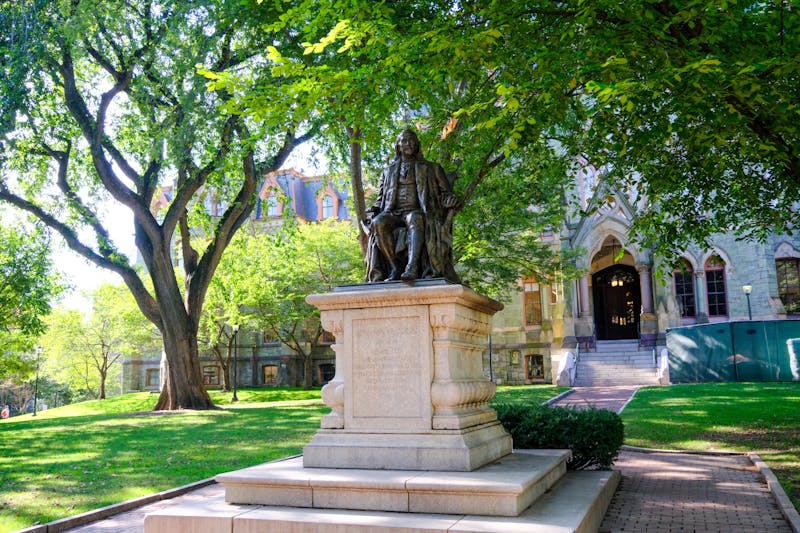Each weekday, I spend the hours of nine to five in an office, like most college students with summer jobs. But instead of a straight eight hour shift, or a nine hour day with a lunch break, I am blessed with a paid 45 minute lunch and a paid 15 minute break. Of course, the 15 minute break is supposed to be used for a coffee break, which, in turn, is intended to spur on one's work. The system, as laid out by the Human Resources department, is strict but fair. In practice, however, the system allows for a quite a large loophole -- for smokers.
From my cubicle's vantage point, I can see the area outside where staff members spend their many cigarette breaks. A great number of my co-workers spend quite a bit of time outside taking their "deserved" breaks as each day unfolds. Seriously addicted smokers go outside more than once every hour. Certainly, I do not have a problem with anyone smoking; it is their prerogative. But I do object to unmerited preferential treatment to smokers. At my employer's, smokers are not at all reprimanded for those additional breaks, even those exceeding their one hour allowance.
Why is it that smokers are allowed extra breaks because of their nicotine addiction? If I went outside every few minutes to walk around, or decided after every hour that I absolutely needed to have a snack, people would start to ask questions, not to mention look at me oddly. Mostly, I would be told to go back inside and get to work. For some reason, it is believed that going outside to breathe fresh air would infringe on my work; I would certainly not be allowed to surpass my hour of non-working time. Whereas, going outside to smoke is perfectly acceptable, and no one is telling the smokers to go back to work.
I spoke with some of my smoking co-workers, asking them why they should be allowed the extra smoking breaks. When confronted with such "difficult questions," the smokers I talked to claim that going outside to smoke is actually impinging on their rights. As one of my co-workers remarked today, "Clearly we are catering to non-smokers. There are enough of us [smokers] that we should be allowed to smoke inside."
In other words, smokers should be allowed to go outside and smoke. Not only that, but they deserve to, because they are doing us non-smokers a favor.
The practice of allowing smokers free rein comes at the expense of their non-smoking peers and is detrimental to the total work output. As a non-smoker being confronted with this situation, I feel this allowance for smokers defies logic. Common sense says those working inside are spending more time actually working, but most non-smokers do not see that sense of goodwill tossed back their way. Perhaps, if I were also getting extra breaks, I would understand this better. But it is more likely that I'd still see the truth of the matter -- that smokers are taking advantage of a flawed system.
The origin of the fatal flaw, in my opinion, could stem from the fact that there are large enough numbers of upper-management smokers who are able to bypass the stated rules themselves. Higher-ups are given the fancy offices and bigger salaries befitting their positions. Because those in charge of the company are quite in control, they are the true rule-makers. The smoking allowance is further understandable if the members of Human Resources themselves smoke. I am not completely surprised that the trend continues; it is just another management perk. Yet, staff smokers are still benefiting from the unwritten allowance.
Upper-level people do not take longer lunch breaks, nor do they obtain longer coffee breaks. Lower-level people are reprimanded for making either exceed the allotted times. Smoking is the sole area of inequity that transcends status. Non-smokers become second-class citizens in a working environment.
Clearly, the easiest way to get extra breaks is to disregard all the warnings of lung cancer and other health concerns related to smoking. On a particularly long day, you could spare yourself a few minutes by going outside and puffing your life away. And, to your amusement, your diminished workload and the slack left by your minutes spent outside are picked up by the ranks of the non-smokers you have just left behind.
In the interest of health, non-smokers will probably not pick up a cigarette, and one day the unsound system may eventually end. Unfortunately, by my thoughts, the end of the system may not be seen until the year 2060 or later. These conditions will affect my entire working career, and the careers of most of the people reading this column. But, for the time being, and for lack of a cigarette break, I am simply left perplexed as to why I can't go outside and take my own fresh-air break.
The Daily Pennsylvanian is an independent, student-run newspaper. Please consider making a donation to support the coverage that shapes the University. Your generosity ensures a future of strong journalism at Penn.
DonatePlease note All comments are eligible for publication in The Daily Pennsylvanian.







